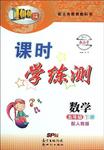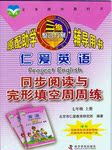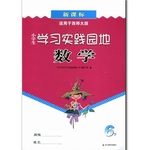Following news of the potential for life on the recently-discovered TRAPPIST-1 system, there may be another competitor ready to take its place.
With the help of the Cassini spacecraft, NASA (National Aeronautics and Space Administration) scientists have picked up the first evidence that chemical reactions are taking place deep below the surface of Enceladus, Saturn’s (土星的) sixth-largest moon. This means that there could be life in Enceladus’ warm underground seas.
An early study found that liquid oceans exist miles below Enceladus’ surface. But to reveal what is happening down there, scientists must rely on the plumes (股) of water that spray (喷射) through cracks in Enceladus’ icy surface. In October 2015, NASA sent Cassini into a deep dive into one of the plumes.
Cassini’s findings, published on April 13 in the journal Science, showed that hydrogen (氢) not only exists on Enceladus, but is also responsible for a chemical reaction between hot rocks and water in the ocean beneath its surface.
This same process on Earth provides energy for entire ecosystems around volcanic vents (火山口). There, tiny creatures are able to survive without sunlight, using hydrogen and carbon dioxide as fuel in a process known as “methanogenesis (甲烷生成)”.
The discovery of this chemical energy source on Enceladus means it could be a very good candidate to host life.
“Confirmation (确认) that the chemical energy for life exists within the ocean of a small moon of Saturn is an important milestone (里程碑) in our search for habitable (可居住的) worlds beyond Earth,” Linda Spilker, Cassini project scientist at NASA, told the Daily Mail.
Alien life was once only thought possible on habitable planets within the “Goldilocks zone” – far enough from our sun not to be a fireball, but not so far as to be freezing.
Research on Enceladus is still in its early stages, but the recent findings have important meanings for future exploration.
“At present, we know of only one genesis (诞生) of life, the one that led to us,” David Rothery, professor of planetary geosciences (行星与地球科学) from the Open University in the UK, told The Telegraph.
“If we knew that life had started independently in two places in our solar system, then we could be pretty confident that life also got started on some of the tens of billions of planets and moons around other stars in our galaxy,” he said.
1.What is the article mainly about?
A. The connection between the TRAPPIST-1 system and Enceladus.
B. The potential for life on Saturn’s moon, Enceladus.
C. The chemical energy source on Enceladus.
D. Scientists’ constant search for life in the solar system.
2.Scientists assume that there could be life on Enceladus because ______.
A. there is evidence of a warm ocean under Enceladus’ surface
B. hot rocks and water have been discovered on Enceladus
C. hydrogen discovered on Enceladus could be a chemical energy source
D. the entire ecosystems of Enceladus are somewhat similar to those of Earth
3.According to David Rothery, the recent findings on Enceladus could mean that ______.
A. there is only one genesis of life in our galaxy
B. there could be many habitable planets, but all in the “Goldilocks zone”
C. it won’t be long before scientists find a habitable planet beyond Earth
D. alien life could exist on some other planets if it existed on Enceladus
 百年学典课时学练测系列答案
百年学典课时学练测系列答案 仁爱英语同步练习册系列答案
仁爱英语同步练习册系列答案 学习实践园地系列答案
学习实践园地系列答案 百年学典课时学练测系列答案
百年学典课时学练测系列答案 仁爱英语同步练习册系列答案
仁爱英语同步练习册系列答案 学习实践园地系列答案
学习实践园地系列答案